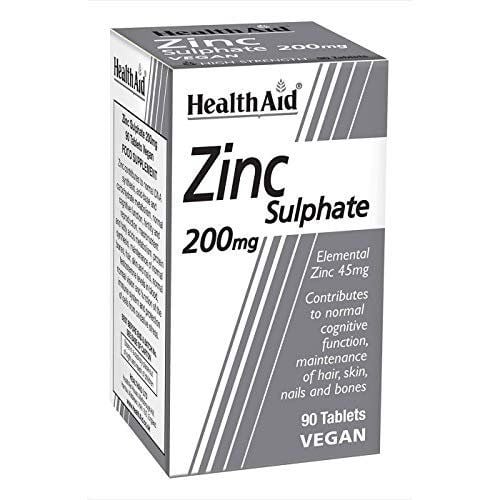This is an automatically translated article.
The digestive system of children is similar to that of adults, including the mouth, pharynx, esophagus, stomach, small intestine and large intestine. However, a child's digestive system is not as fully functional as an adult's and it needs more special care. In order for the baby's digestive system to be healthy, parents need to pay attention to the type of food that the child consumes as well as the ways in which food is prepared.1. Why is it important to take care of your baby's digestive system to be healthy?
Food has the effect of providing energy for the child's body. The nutrients in the food are the main driving force for the organs in the body to function properly.Digestion begins even before the baby tastes the food, just smell the food and the baby's saliva comes out and the digestion begins. Saliva contains digestive enzymes and serves to moisten food to make it easier to swallow.
The digestive system helps convert the food we eat into energy by breaking it down into small parts that the body can absorb nutrients, including carbohydrates, proteins, fats, vitamins and minerals; and remove the waste.
The body's digestive system is like a long tube of internal organs, where food enters the mouth, passes through the esophagus, stomach, intestines and exits through the anus in the form of stool. For the digestive organs to function properly, the pancreas, gallbladder, and rectum are needed.
Children's digestive system is like a new machine; If it is taken care of, it will work smoothly for a lifetime. Left untreated, your child can suffer from digestive problems, diarrhea, obesity, intestinal inflammation, gas, indigestion, and infections.
Children's digestive system is mostly affected by unhealthy lifestyle and eating habits. If this goes on for a long time, your child may face many chronic diseases as an adult. Children cannot take care of their own digestive system. They depend on their parents, to maintain their lifestyle and eating habits and to keep their digestive system developed.
2. Ways to take care of your baby's digestive system to be healthy
A fairly simple formula to build and maintain a healthy digestive system for your child is to give him a healthy, high-fiber, complete and varied diet. In addition, should teach children the habit of physical exercise.2.1 Exercise Encourage your child to do more physical activity instead of playing video games or watching TV.
Make sure your child is physically active for at least 60 to 90 minutes a day. This is not a total time for an ongoing process, 30 minutes in the morning and 30 minutes in the evening would be a reasonable timetable.
Any physical activity that increases breathing and heart rate is good for a child's digestive system. It helps to stimulate the intestinal muscles and food to move more efficiently through the intestines. Exercise will help your child maintain a healthy weight. However, it is not advisable to do any heavy physical activity or exercise right after a meal.

Các hoạt động thể chất có thể giúp hệ tiêu hóa của trẻ khỏe mạnh hơn
Foods rich in fiber help soften stools and prevent constipation. Fiber reduces symptoms of digestive disorders such as hemorrhoids and irritable bowel syndrome. Whole grains, apples, oranges, bananas, berries, prunes, chickpeas, almonds and legumes like dried beans, peas, lentils, etc. are some of the best sources of fiber.
Teach children to thoroughly and properly chew whatever they eat. Because saliva has enzymes that help break down food, chewing is the step that prepares the body to accept food. When we chew food, the stomach and pancreas begin to secrete enzymes that aid in the digestion process. Chewing food thoroughly also helps children avoid swallowing air with food, which can cause gas and bloating.
Do not let children eat too full, large meals cannot be digested in time and disturb the digestive system. You should maintain strict eating habits for children, keep a gap between meals so that the digestive organs can rest. Strict eating habits will make your child's digestive system work like clockwork.
Limit your child's intake of fat, sugar and salt. They can lead to short-term problems like indigestion and diarrhea, and long-term problems like childhood diabetes and high blood pressure. Avoid foods such as chips, bakery products, cakes, soft drinks and packaged juices, as they may contain preservatives and food coloring... not good for children.
Give your child more prebiotics and probiotics in their diet. Your baby's digestive system is full of bacteria, some of which are good bacteria and some are bad bacteria. It is very important to maintain a balance of good and bad bacteria. To maintain this balance, give them probiotics and prebiotics. Probiotics are good bacteria and prebiotics are food for good bacteria, helping to stimulate natural enzymes and digestive processes that keep organs functioning properly. Probiotics can be found in yogurt, pickles, dark chocolate cheese, apples, soy milk, olives, and other fermented dairy products. Prebiotics, which feed the good bacteria and make them healthy, can be found in whole grains, oatmeal, bananas, legumes, onions, garlic and honey.
Give your child plenty of water to drink, water helps keep stools lubricated so that stools pass more easily to the intestines. Drinking plenty of water helps the body eliminate toxins through sweat, tears and urine. Make sure your child is drinking pure, filtered water from a safe source.
Reduce exposure to toxins around your child. Children are more susceptible to harmful substances and their effects than adults because they are still developing from the inside and out. Poisons are everywhere, from the air they breathe to the food they eat and the toys they play with.
Poison is also inside the plastic. Plastic is the main culprit because of the poison called Bisphenol A (BPA) inside it. It is a substance that affects the production, excretion, transport, activity, function and elimination of natural hormones. Today, toys and even eating utensils are made of plastic. Children often put toys in their mouths, which can be very dangerous. When toxic substances enter a child's body, the poison can destroy your child's overall health, starting with damage to the digestive system and even cancer in the long run. Therefore, parents should not use plastic utensils to heat or store food and only buy BPA-free products.

Để hệ tiêu hóa của trẻ khỏe mạnh bạn không nên cho trẻ ăn quá no
To keep your baby's digestive system healthy, don't let your child get too stressed about anything in life. A child's digestive system is controlled by the central nervous system. Stress can trigger a decrease in blood flow leading to contractions of the digestive muscles and a decrease in the production of stomach acid needed for digestion.
In addition, the baby needs to add the necessary micronutrients: Zinc, selenium, chromium, vitamins B1 and B6, ginger, acerola fruit extract (vitamin C), ... to improve taste, eat delicious, achieve the right height and weight, and exceed the standard, have a good immune system, strengthen the resistance to get sick less often and have less digestive problems.
Also according to leading nutrition experts, parents need to be calm and persistent when supplementing with nutrients for children, even through eating or functional foods. In particular, the use of functional foods should choose those of natural origin that are easily absorbed, do not allow simultaneous use of many types or continuously change the types of functional foods. Besides, nutrition experts also emphasized on the role of biological zinc; Parents should learn and supplement zinc for children properly at the appropriate time, to avoid zinc deficiency affecting the comprehensive development of children.
It can be said that the child's digestive system is quite sensitive, for the child to develop comprehensively, parents need to pay attention, learn about the child's digestive system and take proper care of the child to limit the risk of infection. or child malnutrition. If young children have problems related to the digestive system, parents should not be subjective, carefully monitor them and take them to the nearest and reputable medical facility for timely examination.
In addition to zinc, parents also need to supplement their children with other important vitamins and minerals such as lysine, chromium, B vitamins,... errands.
To have more knowledge about raising children and taking care of children by age, you should regularly visit the website https://vinmec.com and make an appointment with the leading doctors, pediatric experts - Nutrition when visiting the website https://vinmec.com need advice.













